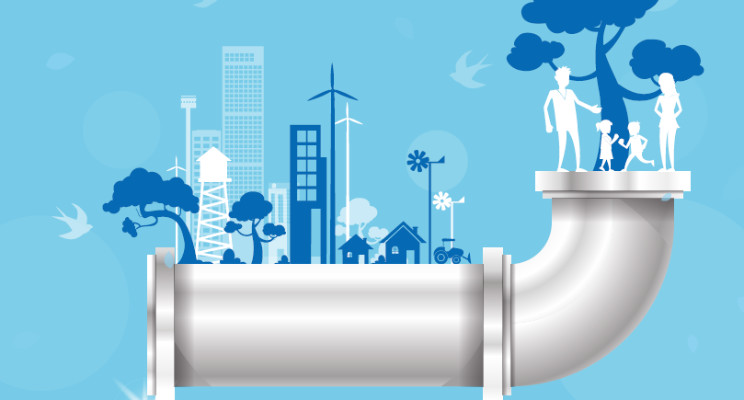About the Author
Mr. Sumeet Mehra is the President and CEO at Sparkle Clean Tech Pvt Ltd, where his visionary leadership has propelled the company to the forefront of environmental innovation. With an unwavering commitment to sustainability, Sumeet has spearheaded the successful implementation of water recycling systems and effluent treatment plants, revolutionizing the reuse of textile wastewater within the industry. Drawing from over 24 years of invaluable experience, Sumeet continues to lead Sparkle Clean Tech Pvt Ltd in customizing and innovating systems that optimize water use efficiency, setting new standards for environmental stewardship and corporate responsibility.
Beyond his professional endeavours, Sumeet exemplifies a spirit of philanthropy, generously offering his expertise and time to two non-profit organizations dedicated to empowering youth in business and combating poverty in Mumbai. Sumeet earned his Bachelor of Commerce degree from Sydenham College of Commerce and Economics, laying the foundation for his illustrious career. He further honed his business acumen by completing a Business Degree program at Harvard University.

In a world where water scarcity is increasingly prevalent, efficient water management has become a critical global concern. Despite the Earth’s surface being predominantly water-covered, access to freshwater remains limited, with only a small fraction being readily available for consumption. The consequences of this scarcity are staggering, impacting billions of people worldwide. Merely 3% of the Earth’s water is fresh, with around two-thirds of that locked in glaciers or otherwise inaccessible. According to a report, approximately 1.1 billion individuals globally lack access to clean water, and a staggering 2.7 billion face scarcity for at least one month annually. Hence, water scarcity and the need for efficient water management have become the need of the hour globally.
In commercial buildings, water consumption represents a significant portion of operational costs and environmental impact. From HVAC systems to restroom facilities and landscaping, commercial properties account for a substantial portion of global water consumption. Unfortunately, traditional water management systems often lack real-time monitoring and control, leading to wastage and inefficiency. However, by integrating smart water technologies, we can find promising solutions to tackle these challenges and enhance resource utilization and sustainability within commercial environments.
Understanding smart water technologies
Smart water technologies represent a revolutionary approach to water management, leveraging data monitoring, analysis, and actionable insights to enhance efficiency and reduce waste. These technologies enable real-time monitoring of water consumption, early leak detection, and intelligent water distribution systems. At the heart of this innovation are smart meters, which provide real-time data on water usage, enabling more accurate measurement and monitoring.
Smart meters for Real-time monitoring and Data Analytics
The Key to Real-Time Water Management is using Smart meters. These are innovative devices that revolutionize the way we measure and manage water consumption in residential and commercial settings. Unlike traditional meters, which require manual readings and offer limited insights, smart meters provide real-time data on water usage. These devices use advanced technology, such as wireless communication and data analytics, to enable more accurate measurement and monitoring of energy consumption.
Integration with Sustainable Practices:
Smart water technologies complement and enhance existing sustainability initiatives within commercial buildings. By integrating with energy management systems, green building certifications, and sustainability frameworks, these technologies contribute to holistic resource management strategies. For instance, the incorporation of water-efficient fixtures and automated controls can earn credits towards LEED (Leadership in Energy and Environmental Design) certification, simultaneously curbing water consumption and operational expenses. Furthermore, by harmonizing with corporate sustainability objectives and showcasing environmental responsibility, building owners can bolster their brand reputation and appeal to tenants and investors who are mindful of their choices.

Integration with Building management systems
Automated controls are essential for optimizing water consumption in commercial buildings. Smart water technologies facilitate the deployment of automated controls for irrigation, cooling systems, and water fixtures. Through seamless integration with building management systems (BMS) and Internet of Things (IoT) platforms, these innovations regulate water flow rates, manage irrigation schedules, and optimize usage in response to real-time data and predictive analytics. By employing intelligent control algorithms, buildings can dynamically adjust to fluctuating conditions, thereby reducing waste, and enhancing efficiency without sacrificing comfort or functionality.
Challenges and Considerations:
While the benefits of smart water technologies are evident, their widespread adoption faces several challenges. Initial implementation costs, interoperability issues, and data privacy concerns are among the key hurdles organizations quite often must address. Moreover, ensuring proper maintenance and ongoing support is essential to maximize the long-term benefits of these technologies.
Furthermore, effective stakeholder engagement and user education are critical for successful implementation. Building occupants and facility management staff need to understand the rationale behind these technologies and actively participate in conservation efforts to achieve meaningful results.
Future Outlook:
As technology continues to advance, the potential for smart water technologies to revolutionize water management in commercial buildings is immense. Advancements in sensor technology, artificial intelligence, and cloud computing will further enhance these systems’ capabilities, driving greater adoption and accessibility. With a growing focus on sustainability and regulatory pressures, smart water technologies offer a compelling solution for improving efficiency and sustainability in commercial buildings.
Conclusion:
Smart water technologies hold great promise for improving efficiency and sustainability in commercial buildings. By leveraging real-time monitoring, data analytics, and automation, organizations can optimize water usage, reduce waste, and lower operational costs. While challenges remain, the potential benefits of these technologies far outweigh the initial investment, making them an invaluable asset in the quest for a more sustainable future.





